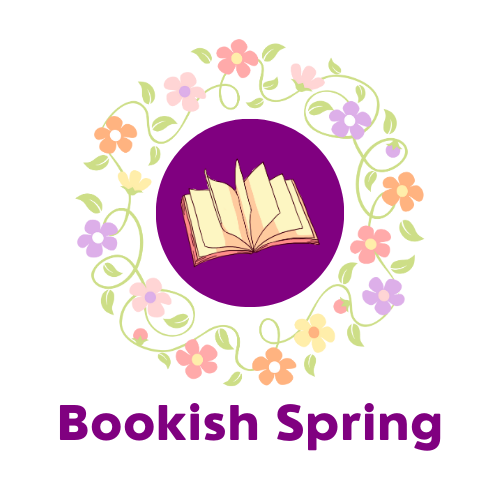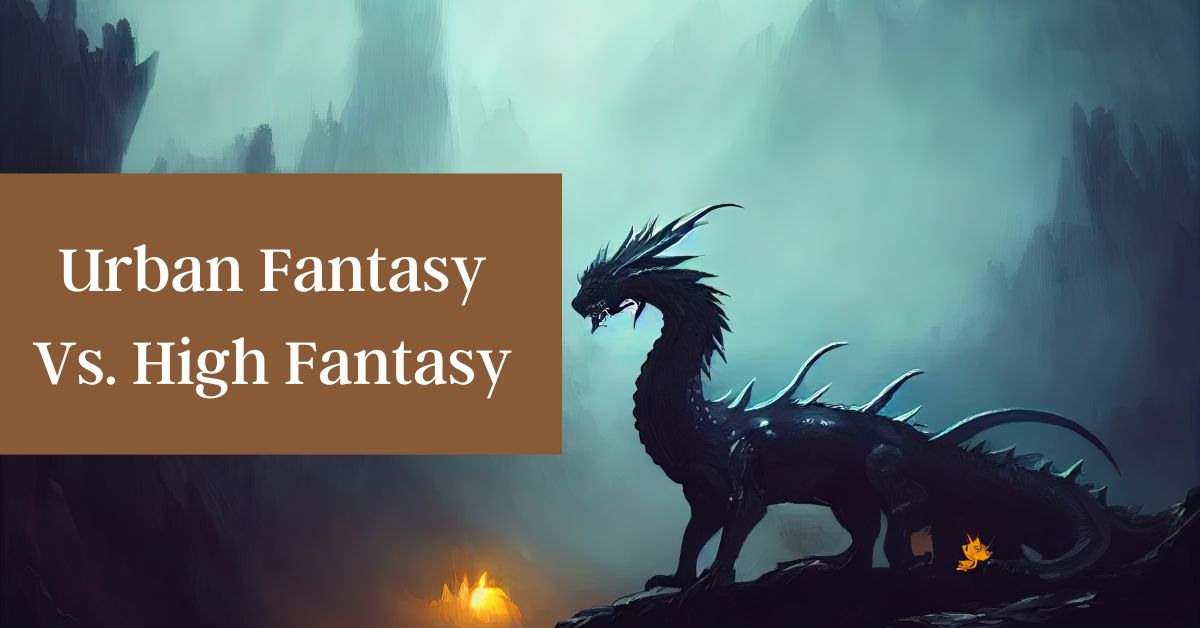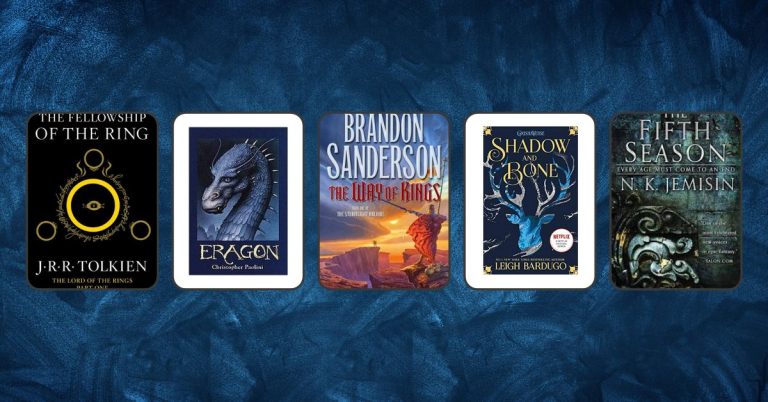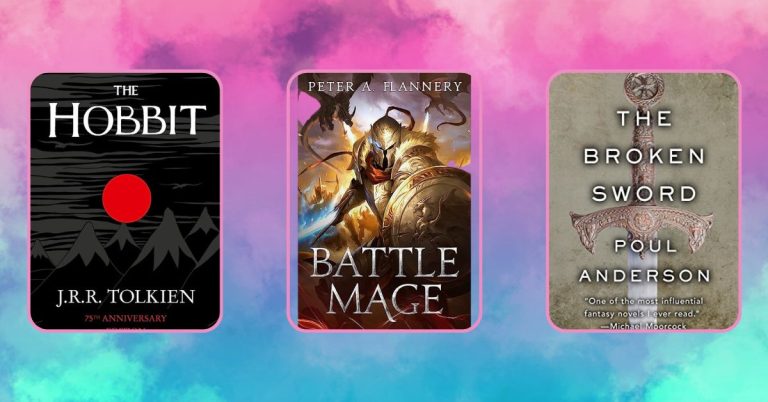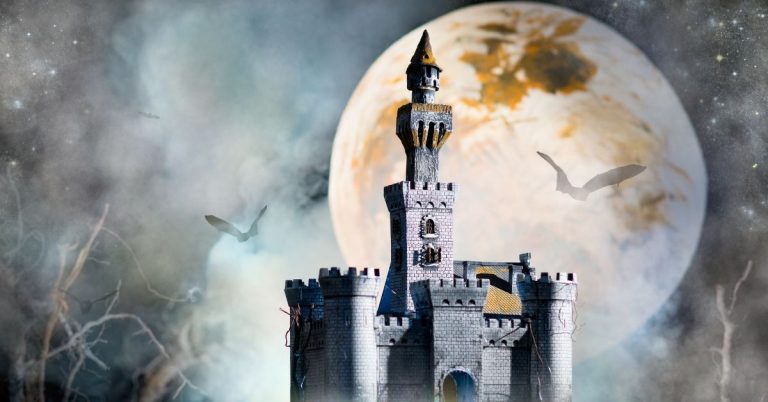Urban Fantasy Vs. High Fantasy: What Is the Difference
So, the story goes back to the time when I was a little girl! As a child, I discovered the enchanting world of fantasy books and the new realm of magical beings. These captivating stories took me on extraordinary journeys where magic, mythical creatures, and epic adventures awaited me at every turn of the page.
It was through fantasy literature that I discovered the immense power of imagination and the joy of escaping into fictional realms. I get to know different kinds of fantasies, including high and urban fantasies. Today, I invite you to join me on a quest to explore the captivating realms of fantasy and understand the difference between two prominent subgenres: urban fantasy and high fantasy.
What is urban fantasy?
Urban fantasy is a captivating and varied subgenre of fantasy fiction that elegantly blends fantastical themes with current urban settings. This subgenre provides readers with the opportunity to imagine the convergence of magic and modernity through a unique combination of the everyday banal and the enchantingly fantastic.
Unlike classic high fantasy, where stories take place in entirely imaginary realms, urban fantasy introduces the fascinating elements of magic to our own familiar reality. High fantasy typically transports readers to wholly foreign worlds, generally medieval-inspired lands populated by wizards, dragons, and kingdoms.
Urban fantasy expertly blends the extraordinary with the every day, bringing us to a realm where magical elements are subtly woven into the fabric of our known reality. Readers are treated with tales of secret places buried just out of sight of our conventional vision yet interlaced throughout our own metropolitan landscapes in the intriguing world of urban fantasy.
These stories frequently depict vivid pictures of hidden mystical places interwoven among dense urban development, invisible to the untrained. Such hidden places bring a new degree of intricacy and interest to familiar surroundings, whether it’s the underbelly of New York or the roofs of Paris.
Furthermore, urban fantasy isn’t merely about hidden places. It thrives in the presence of supernatural entities and magical beings who coexist peacefully or violently with humanity. Urban fiction is filled with such beings, adeptly blending the supernatural with the natural, from secretive vampires running elite nightclubs to werewolves guarding their territories in urban parks to fairies lurking in plain sight.
The dramatic contrast of such things against a backdrop of everyday human existence, busy cities, and modern technology adds another layer to the reading experience.
Thus, urban fantasy is a startling commentary on modern life. It portrays the intricacies of city life and delves into contemporary issues such as multiculturalism, social variety, and the difficulties of maintaining relationships in an ever-changing society. All of these components revolve around the primary notion of magical and supernatural entities living in plain sight among us.
The appeal of urban fantasy exceeds the constraints of classic fantasy literature. It raises the question, What if the world isn’t as ordinary as we think? The idea of magic lying beneath our everyday world captivates readers, prompting them to explore the urban fantasy genre further.
What are some notable urban fantasy examples?
Take a look at some notable examples of urban fantasy literature, each characterized by its unique blend of the magical and the mundane.
1. Harry Potter series by J.K. Rowling
These seven books, set mostly in contemporary Britain, cover the eponymous young wizard’s path through magical education while also battling the dark wizard who threatens their magical society. Non-magical humans, known as Muggles, are unaware of the existence of magical materials, creatures, and places (such as Hogwarts School of Witchcraft and Wizardry).
2. The Dresden Files series by Jim Butcher
These stories, which star Harry Dresden, Chicago’s only professional wizard, are a mix of magic and detective noir. Butcher’s world is teeming with supernatural species ranging from vampires to werewolves to faeries who dwell alongside unwary humanity. While solving paranormal riddles, Harry is frequently forced to navigate the creatures’ complicated politics.
In her unexpected new position, Yeine becomes entangled in a savage power struggle with cousins she never knew she had. All the while, she’s piecing together the enigma of her mother’s death and her family’s bloody past.
3. The Mortal Instruments series by Cassandra Clare
This book follows Clary Fray, who realizes she is a member of the Shadowhunters, a secret race of heavenly beings who quietly safeguard the human world from demons. Clare’s urban milieu, set in New York City, is teeming with magical beings, hidden realms, and an undercurrent of supernatural politics.
4. American Gods by Neil Gaiman
This one-of-a-kind novel combines mythology, fantasy, and Americana. It follows ex-convict Shadow Moon as he becomes engaged in a war between the Old Gods, who represent forgotten immigrants to America, and the New Gods, who represent modern obsessions such as technology and media. The story takes place against the backdrop of modern-day America, making it a true urban fantasy.
5. Rivers of London series by Ben Aaronovitch
This series, sometimes known as the Peter Grant series, is the ideal combination of urban fantasy and detective mystery. Peter Grant, the protagonist, is a police officer and an apprentice wizard in London, where he solves crimes using magic and the supernatural, shedding light on the city’s dark magical underbelly.
Each of these works showcases a unique vision of how magic and the modern world might intersect, making them quintessential examples of the urban fantasy genre.
What is urban fantasy vs. high fantasy?
Urban fantasy and high fantasy are two separate subgenres of fantasy literature, each having its own specific characteristics, locales, and narrative components.
Urban fantasy is a subgenre that cleverly integrates fantasy elements with modern, generally urban settings. Magic intrudes on reality in these stories, presenting itself within the limitations of our familiar world. The setting for the story could be the pulsing core of a bustling city or the tranquil confines of a suburban landscape, but the appeal of urban fantasy rests in its placement within our familiar reality.
The charm of this genre stems from the juxtaposition of extraordinary beings and magical elements living alongside regular, prosaic human existence. Characters may go about their daily lives while battling vampires or practicing magic at night, frequently in secret, away from the mass of non-magical society.
High fantasy, on the other hand, is situated in a separate, magically constructed universe with its own set of rules and physical laws. Epic voyages, battles between good and evil, and a wide cast of characters, including wizards, dragons, and mythological monsters, constitute high fantasy.
In contrast to urban fantasy, the supernatural and magical elements of high fantasy are not discordant or hidden; they are required for the universe to work.
At its foundation, high fantasy allows readers to immerse themselves in a whole new realm, disconnected from the known world. Famous works in this genre include J.R.R. Tolkien’s The Lord of the Rings and George R.R. Martin’s A Song of Ice and Fire.
The primary distinction between urban fantasy and high fantasy is their relationship to the known, daily world. The mystical is superimposed over the mundane in urban fantasy, juxtaposing two worlds and exploring the tension that develops from their coexistence.
It implies that magic may exist in our own reality, either around the corner or buried in plain sight. High fantasy, on the other hand, invents a totally new universe and uses it as a canvas for the unfolding story, providing an escapist fantasy in which magic is prevalent.
Both urban fantasy and high fantasy enthrall readers with stories of magic and the supernatural but in different ways. Whether a reader favors the familiar surroundings of urban fantasy or the more exotic regions of high fantasy is largely determined by their personal preferences. Nonetheless, both genres continue to thrive, demonstrating the enduring attraction of fantasy literature in all its manifestations.
What are the Key characteristics of urban fantasy?
Urban fantasy stories are typically set in urban settings, such as bustling metropolis or quiet towns. These environments, which are familiar to us, serve as the backdrop for incredible supernatural events. The normal metropolitan hustle, recognizable cityscapes, modern technology, and our everyday reality serve as the canvas for elaborate tales of enchantment and mystery, offering a sense of familiarity to the astonishing events unfolding within these storylines.
The coexistence of magic with the mundane is a defining feature of urban fantasy. Enchanting spells, mystical artifacts, magical people, and supernatural phenomena are tightly woven into the fabric of our mundane existence, and the majority of the human population is often unaware of them.
The magic isn’t in a faraway place; rather, it’s just next door, directly under our noses, cloaked by the mundane. This skillful blending of the supernatural and the commonplace is at the heart of urban fantasy, instilling awe in everyday life and forcing readers to examine the nature of their reality.
The character arcs of the protagonists are an intriguing aspect of urban fantasy. They frequently take on the appearance of everyday people, such as a detective or a schoolteacher. When they come into contact with the hidden magical world, their everyday lives change dramatically. Their routines and cultural standards are suddenly altered by encounters with mythical entities, magical talents, or ethereal realms.
Many urban fantasy stories revolve around their transformation from ordinary people to those immersed in a magical world. This astounding transformation of the ordinary person instills in the readers a sense of possibility that they, too, may stumble onto a realm of enchantment within their mundane lives.
In essence, urban fantasy contrasts the familiar and the fantastic, resulting in a captivating genre in which magic lurks around every corner, waiting to be discovered in our daily lives. It deftly blends the mundane and the remarkable into a cohesive story, enthralling readers with a blend of realism and imagination that is as enchanting as it is familiar.
What is high fantasy, and how do you identify it as high fantasy?
High fantasy, one of the most captivating genres of speculative fiction, takes its readers on epic excursions that whisk them away from the constraints of known reality and catapult them into wholly invented worlds. This genre’s narratives are distinguished by their breadth and depth and are packed with exciting adventures that frequently impact the fate of these constructed worlds.
These journeys, which are typically motivated by overarching themes of heroism, adventure, and morality, can range from the search for mythical items to the fulfillment of ancient prophecies, with stakes as high as saving an entire civilization.
These self-contained universes are painstakingly built with unrivaled detail and inventiveness. Their extensive world-building is a cornerstone of high fantasy, spanning from the creation of elaborate mythologies, comprehensive maps, and separate ecological systems to the development of distinct languages. Each of these elements contributes to the immersive reading experience, leading readers further into the heart of these extraordinary worlds.
High fantasy storylines are frequently distinguished by the archetypal fight between good and evil, manifested in large-scale confrontations. These could take the form of nation-state wars, battles between powerful entities, or clashes between conflicting moral or philosophical philosophies.
The grandeur of these fights adds to the epic character of the stories, frequently placing heroes against fearsome foes and building climactic clashes that may change the very fabric of these wondrous worlds.
The genre thrives on its broad cast of characters, which frequently includes mythological creatures like dragons, elves, wizards, and other supernatural beings. Apart from adding to the surreal atmosphere, these creatures frequently play important parts in the tale, sometimes as allies, enemies, or even key characters themselves.
Furthermore, high fantasy is known for its breathtaking landscapes, which include towering mountain ranges, huge forests, enchanted islands, and ancient, enigmatic towns. These stunning landscapes not only serve as dramatic backdrops for the unfolding action but also as characters in their own right, frequently altering the story and defining the protagonists’ journeys.
High fantasy transports readers away from the mundane and into fantastic realms where the extraordinary is usual. High fantasy, with its sophisticated world-building, grand-scale conflicts, and mythological roots, weaves together narratives that remain long after the final page is turned, establishing it as a genre that genuinely exceeds the limitations of imagination.
Classic examples of high fantasy
Tolkien’s The Lord of the Rings trilogy
Tolkien’s masterwork, The Lord of the Rings, is an epic work of high fantasy that follows a wide cast of characters as they explore Middle-earth in search of a great ring with the potential to destroy everything.
The novel A Song of Ice and Fire by George R. R. Martin
Readers are immersed in a world of political intrigue, dragons, and power conflicts in this massive book that served as the basis for the Game of Thrones television adaptation.
Key elements of high fantasy
Rich world-building: High fantasy frequently incorporates intricate world-building with comprehensive maps, histories, and unique cultures that immerse readers in the depth and complexity of the imaginary universe.
Epic quests and heroic characters: Epic quests undertaken by heroes, prophecies, and big confrontations between forces of good and evil are common in high fantasy fiction.
Mythical creatures and magic: High fantasy is rife with magical beings, mythical creatures, and potent kinds of magic that create the world and influence the protagonists’ journeys.
The gateway to new worlds with urban and high fantasy:
1. Fantasy introduces you to a novel world
Readers can escape into enchanted realms with fantasy books, bringing them to regions where imagination reigns supreme. We embark on journeys alongside exceptional people and discover realms filled with wonder and enchantment by immersing ourselves in these new realities.
2. The power of imagination in fantasy literature
Fantasy literature piques our interest by asking us to imagine settings, animals, and societies that exist only in our imaginations. Authors pique our interest with vivid descriptions and precise details, allowing us to picture and bring these imaginative things to life in our thoughts.
3. Enabling deep thinking and exploration of complex themes
Fantasy literature is about more than simply magical creatures and heroic quests; it also explores deep themes and complicated ideas. Authors frequently address universal themes such as power, morality, identity, and the essence of good and evil through the fantastical features of the genre.
Fantasy literature gives readers a unique viewpoint and an opportunity for profound contemplation by examining these subjects within the context of a fictional universe.
4. Seeing the world in a new light
One of fantasy literature’s outstanding qualities is its ability to throw new light on the world we live in. Fantasy books challenge our preconceptions and broaden our understanding of different cultures, ideas, and viewpoints by portraying alternate realities, exotic societies, and diverse individuals. They foster empathy and assist us in appreciating the complex tapestry of human experiences.
Choosing between urban fantasy and high fantasy
It all boils down to personal opinion when it comes to choosing a fantasy adventure. Urban fantasy is an exciting blend of the magical and the modern, allowing readers to imagine magic existing right around the corner. The urban environment gives the fantastical components a sense of familiarity and relatability, making it an appealing alternative for individuals who enjoy a bit of enchantment in their daily life.
High fantasy, on the other hand, takes us on vast adventures through wholly fictitious kingdoms. It transports us to realms beautifully detailed with fantastic animals, ancient prophecies, and epic adventures. High fantasy allows you to entirely immerse yourself in a domain of pure imagination, where the bounds of reality are pushed aside, and the possibilities are endless.
Whether you favor urban landscapes where magic lurks among skyscrapers and hidden alleyways or the huge, wide kingdoms of high fantasy with their awe-inspiring scenery and larger-than-life people, each subgenre has its own distinct charm and excitement.
But the choice is yours.
So, I will ask you to read both urban fantasy and high fantasy, enabling you to be transported to new worlds and discover the many beauties that fantasy literature has to offer. Dive into the enchanting streets of urban fantasy or start on an epic journey through the enchanted regions of high fantasy – a realm awaits you, ready to capture your imagination and lead you on a fascinating adventure.
Final Thoughts
Fantasy literature, with its various subgenres, such as urban fantasy and high fantasy, has the enchantment of transporting readers to amazing places beyond the borders of reality. These enthralling stories open the door to new worlds filled with magic, legendary animals, and epic adventures.
Whether you choose to embark on great expeditions across wholly fictional nations in high fantasy or are attracted by the blend of magic and current settings in urban fantasy, the domain of fantasy literature has something for every reader’s taste.
Furthermore, fantasy literature promotes empathy and inclusivity, with contemporary authors attempting to portray many perspectives and experiences inside their fanciful settings. These stories educate us to respect and understand humanity’s different fabric by embracing the richness of our own civilization.
This time, I encourage you to immerse yourself in the worlds of urban fantasy and high fantasy. Dive deep into the world of magical, mythical creatures, let your imagination run wild, and let these enthralling stories take you to worlds where anything is possible.

I am Sanchita, and books are my life force. I live and breathe stories. Getting lost in fictional worlds has been my favorite thing to do for as long as I can remember. Over the course of 20 years, I have read over a thousand books and here I have come to talk about them.
